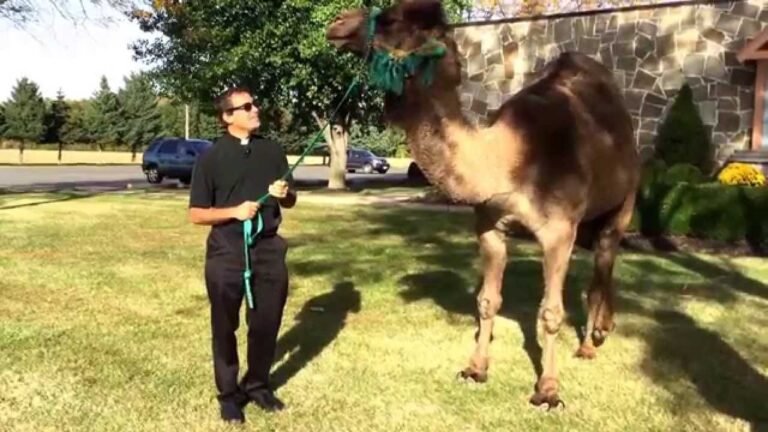The Faith of the Founding Fathers: An Exploration of Their Religious Beliefs
The religion of the Founding Fathers has long been a topic of fascination and debate, shaping our understanding of the United States’ early values and principles. While often perceived as staunchly Christian, many of these pivotal figures embraced a diverse range of beliefs, drawing from Enlightenment ideals, deism, and a commitment to reason. This rich tapestry of faith not only influenced their vision for a new nation but also laid the groundwork for a secular government that values religious freedom. Exploring their complex spiritual landscapes reveals profound insights into the foundations of American democracy and the enduring quest for liberty.
What influenced the Founding Fathers’ religious beliefs?
The Founding Fathers were influenced by Enlightenment ideals, Christianity, deism, and diverse philosophical thoughts, shaping their views on religion and governance.
Which religions did each of the Founding Fathers practice?
The religious beliefs of the Founding Fathers were diverse and often complex, reflecting a spectrum of thought that contributed to the formation of the United States. While many identified as Christians, a significant number, including prominent figures like John Adams, adhered to Unitarianism, rejecting traditional Trinitarian views. This divergence sometimes sparked debate about their Christian identity, as Unitarians emphasized moral teachings over the divine nature of Jesus. Their perspectives were often progressive for their time, aligning with what some might today label as ‘social justice’ principles, showcasing a blend of faith and Enlightenment ideals that shaped the nation’s foundational values.
Do deists hold beliefs about Jesus?
Deism is a philosophical belief in a creator who does not intervene in the universe, and within this framework, Christian deists have a unique perspective on Jesus Christ. While they acknowledge his historical significance and moral teachings, they do not worship him as divine. Instead, they see Jesus as a remarkable figure who exemplified virtue and ethical living, rather than as the son of God in the traditional Christian sense.
The views among Christian deists regarding Jesus can vary significantly. Some may regard him as a profound teacher whose messages resonate with deistic principles, while others might see him more as a moral guide rather than a savior. This spectrum of beliefs reflects the broader nature of deism, which allows for personal interpretations of religious figures without the constraints of orthodox doctrines.
Ultimately, the relationship between Christian deists and Jesus is characterized by a respect for his teachings and a recognition of his role in history, rather than a commitment to his divinity. This nuanced understanding highlights the complexity of deistic thought, where individuals can appreciate the moral aspects of Jesus’ life while maintaining their belief in a non-interventionist creator.
What was Thomas Jefferson’s religion?
Thomas Jefferson, one of the key figures in American history, embraced a belief system that aligned with Deism, a philosophy that emphasizes reason and natural law over established religious doctrines. This perspective was common among several of the Founding Fathers, who sought to reconcile Enlightenment ideals with their understanding of spirituality. Jefferson’s approach to religion was marked by a commitment to rational thought, which influenced his views on governance and human rights.
In his writings, Jefferson openly rejected traditional Christian beliefs, including the Virgin Birth, original sin, and the resurrection of Jesus. Instead, he focused on the moral teachings attributed to Jesus, viewing them through a lens of ethical reasoning rather than dogma. This selective interpretation allowed him to appreciate the historical figure of Jesus while distancing himself from institutional Christianity and its claims of divine revelation.
Jefferson’s Deist beliefs also shaped his advocacy for religious freedom and the separation of church and state, principles that are foundational to American democracy. By promoting a philosophy that valued individual reasoning and personal conscience, he laid the groundwork for a society where diverse beliefs could coexist. His legacy continues to resonate today, highlighting the importance of critical thought in the pursuit of truth and justice.
Unveiling the Spiritual Foundations of America
Throughout its history, America has been shaped by a rich tapestry of spiritual beliefs and practices. From the early indigenous traditions that honored nature and the cosmos to the waves of European settlers who brought their own religious convictions, the spiritual landscape of the nation has been diverse and profound. This interplay of cultures helped to forge a unique identity, fostering a sense of community and purpose among its inhabitants. As the nation expanded westward, the quest for spiritual fulfillment continued to evolve, reflecting the aspirations and struggles of a growing populace.
The Enlightenment and the Great Awakening marked significant turning points in America’s spiritual journey. These movements ignited a fervor for individual rights and personal faith, encouraging people to question established norms and seek deeper truths. The emphasis on reason and personal experience laid the groundwork for a society that values freedom of belief, paving the way for a multitude of spiritual paths to flourish. This spirit of exploration not only transformed religious practice but also inspired social reform movements that sought justice and equality, underscoring the interconnectedness of spirituality and civic responsibility.
In modern America, spirituality remains a dynamic force, influencing everything from politics to art. The rise of new religious movements and the blending of traditions reflect a society that is increasingly open to diverse expressions of faith. As individuals search for meaning in an ever-changing world, the foundations laid by earlier generations continue to resonate, reminding us that spirituality is not merely a personal endeavor but a collective journey. By embracing this rich spiritual heritage, America can foster a deeper understanding of its values and a more harmonious future for all its citizens.
Divine Influences on Revolutionary Thought
Throughout history, divine influences have played a pivotal role in shaping revolutionary thought, as leaders and movements often invoked higher moral principles to justify their quests for change. Visionaries like Thomas Jefferson and Mahatma Gandhi drew upon spiritual beliefs to articulate their ideals of liberty and justice, framing their struggles not just as political upheavals but as moral imperatives. This intertwining of the sacred and the secular inspired masses to rally for causes greater than themselves, motivating them to envision a world aligned with divine justice. As revolutions unfolded, the invocation of divine authority provided a powerful lens through which to understand human rights, equality, and the pursuit of a more just society, leaving an indelible mark on the fabric of modern thought.
Faith, Freedom, and the Birth of a Nation
In the heart of a fledgling nation, the intertwining threads of faith and freedom sparked a revolutionary spirit that would define a people. As communities gathered in places of worship, their shared beliefs fostered a sense of unity and purpose, igniting the desire for independence. This collective yearning for liberation was not merely a political stance but a deeply spiritual quest, as citizens sought to break free from the chains of oppression and forge a society grounded in the principles of justice and equality.
Emerging from this rich tapestry of conviction and courage, the ideals of democracy took root, empowering individuals to shape their destiny. The birth of a nation was not just a declaration of sovereignty; it was a testament to the enduring power of hope and resilience. As the echoes of faith resonated through the hearts of the people, they collectively embraced the promise of a brighter future, where freedom would flourish and the rights of every individual would be cherished. This legacy of belief and determination continues to inspire generations, reminding us that the pursuit of liberty is a noble endeavor worth fighting for.
The Religious Convictions Behind the Constitution
The United States Constitution stands as a testament to the foundational beliefs of its framers, who were deeply influenced by their religious convictions. Many of the signers were devout individuals, whose understanding of governance was shaped by their faith. They believed that moral integrity, a principle often rooted in religious teachings, was essential for a functioning democracy. This conviction led to the inclusion of checks and balances within the government structure, ensuring that no single entity could wield unchecked power, a reflection of the belief in human fallibility.
Furthermore, the framers recognized the importance of protecting individual liberties, which they viewed as endowed by a higher power. The First Amendment, guaranteeing the freedom of religion, speech, and assembly, highlights their commitment to maintaining a society where faith can flourish without government interference. This protection was not merely an afterthought; it was a core principle that acknowledged the diverse religious landscape of the nation and the necessity for coexistence among various beliefs.
Ultimately, the Constitution serves as a blueprint for governance that respects and reflects the religious convictions of its creators. By embedding these beliefs into the fabric of American law, the framers sought to create a society where moral values guide public life while ensuring that personal faith remains a private matter. This delicate balance has allowed the United States to thrive as a pluralistic society, honoring both its religious roots and the secular principles of democracy.
How Belief Shaped America’s Founding Principles
The founding principles of America were deeply influenced by a tapestry of beliefs that interwove religious conviction, Enlightenment ideals, and a commitment to individual rights. Early settlers, many of whom sought refuge from persecution, brought with them a profound sense of liberty rooted in their faith. This quest for religious freedom not only shaped their communities but also laid the groundwork for a nation that would prioritize the rights of the individual over the dictates of authority.
As Enlightenment thinkers like Locke and Rousseau challenged traditional notions of governance, their ideas found fertile ground among American revolutionaries. They embraced the concept of natural rights, arguing that individuals were entitled to life, liberty, and the pursuit of happiness. This philosophical evolution was not merely an intellectual exercise; it became a rallying cry that united colonists against tyranny and informed the drafting of foundational documents such as the Declaration of Independence and the Constitution.
Ultimately, the belief in self-governance and the inherent dignity of every person forged a unique American identity. This blend of religious and philosophical principles ensured that the nation’s birth was not just a political revolution but also a profound ideological shift. As America continues to evolve, these core beliefs remain a touchstone, reminding us of the enduring power of conviction in shaping a society that values freedom, equality, and justice for all.
The religion of the founding fathers played a pivotal role in shaping the principles and values that underpin the United States. Their diverse beliefs, ranging from traditional Christianity to Deism, influenced their views on liberty, morality, and governance. By embracing a philosophy that valued reason and individual rights, they laid the groundwork for a nation that champions freedom of belief and thought. Understanding their religious perspectives not only enriches our comprehension of American history but also serves as a reminder of the enduring power of faith in the pursuit of justice and equality.







